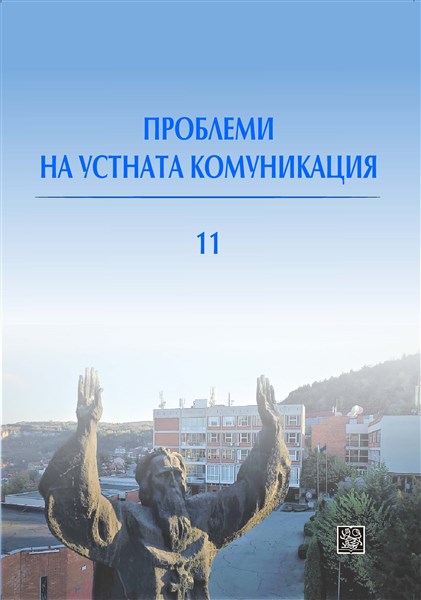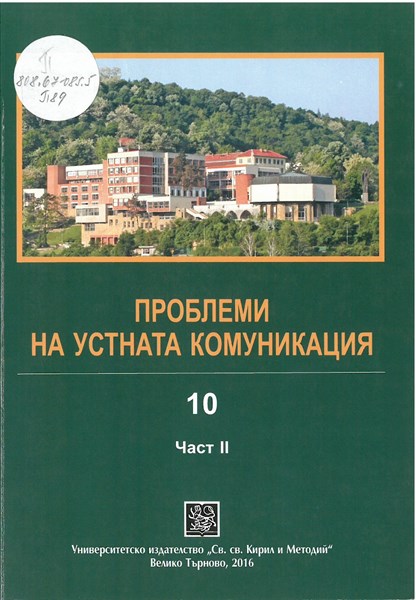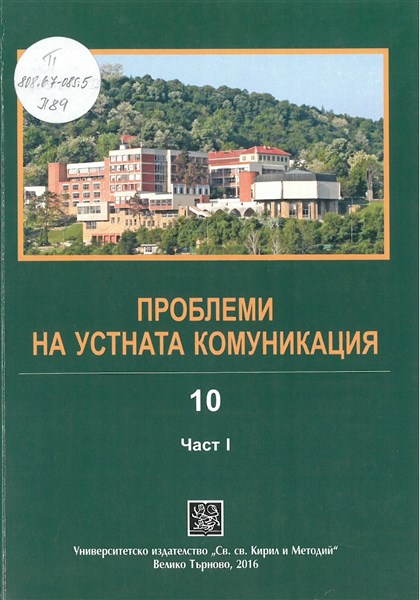
Бъдещите времена в българския език като морфосинтактични характеристики на Балканския езиков съюз
The paper examines the system of future tenses in Bulgarian as part of the morphosyntactic specificities of the Balkansprachbund. A hypothesis is presented that there exists a Balkan center of future tenses – from Byzantine and Modern Greek to Bulgarian (including Macedonian), Serbian and Croatian, up to Slovene, where the future tense is formed by the verb to be. However, Bulgarian has indeed the largest number of future tense paradigms. Some verb forms in contemporary Bulgarian originate from Old Bulgarian. This is valid for both – synthetic and analytic forms. At the same time, some verb forms result from an influence by other Balkan languages, e.g. the adstrat languages like Balkan Romance or Balkan Greek, and a superstrat language like Turkish.
More...

